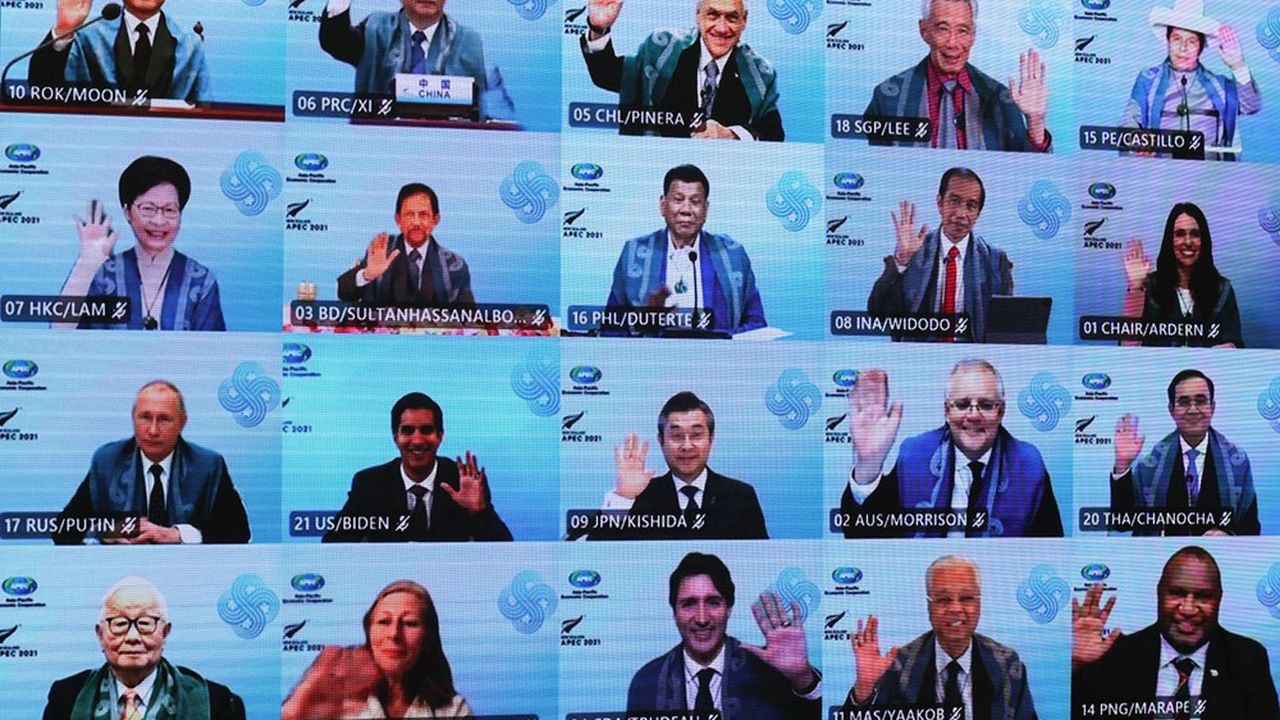Posted on Nov. 14, 2021, 3:30 p.m.Updated Nov 14, 2021, 3:42 PM
At the end of their virtual summit this weekend, the leaders of 21 Asia-Pacific nations, gathered within APEC (Economic Cooperation for Asia-Pacific), succeeded in staging a minimum of unanimity to promise a new phase of trade liberalization in the region in order to facilitate economic recovery after the Covid-19 pandemic. “We support the efforts underway to conclude, ratify and implement trade agreements in the region”, assured, in their final communiqué, the leaders of China, the United States, Japan, South Korea, Russia and Australia.
In the short term, the 21 nations, which generate 60% of global GDP, have even pledged to lower customs tariffs, which still hamper the circulation of masks, vaccines and other medical equipment.
Delicate negotiations
Behind the scenes, however, their negotiations were much less harmonious. The countries of the zone find themselves caught up, despite themselves, in the Sino-American strategic standoff which now focuses on the possible accession of Taiwan to the great regional free trade pact, called CPTPP (“Comprehensive and Progressive Agreement for Trans-Pacific Partnership ”).
All members of Apec, the 11 signatories (Canada, Australia, Brunei, Chile, Japan, Malaysia, Mexico, New Zealand, Peru, Singapore and Vietnam) of this great treaty, that the United States had left on the orders of Donald Trump in 2017, took note last September of the official candidacies of Beijing and Taipei to their pact. They were also warned, at the same time, that China would not tolerate membership of Taiwan, which is however directly supported by Japan, the great ally of the United States in the region.
Demanding standards
Refusing to choose between Beijing and Washington, CPTPP member nations will have to study this thorny issue with caution. “If we are only interested in the technical prerequisites to be able to integrate this agreement, it is likely that Taiwan will be able to fulfill them well before China,” recalls Fukunari Kimura, a professor specializing in international trade issues at Keio University. . “Its economic system is much closer to the Western liberal model whereas China should, if it really wanted to join, initiate very deep reforms, in particular on the weight of its state companies”, insists the expert.
He notes that this agreement certainly orchestrates a large reduction in customs tariffs, but also imposes very demanding standards in terms of economic liberalization or labor law. These are all standards that Beijing seems reluctant to adopt.
If they do not believe in the possibility of China’s membership in the CPTPP, large companies in the region would welcome Taiwan’s membership. “But, at the same time, they fear that these competing candidacies will lead to harmful political disturbances in the region,” warns Fukunari Kimura. A politicization that would increase if the Biden administration in turn began steps to join the great pact, as several major American economic lobbies are now asking.
–


